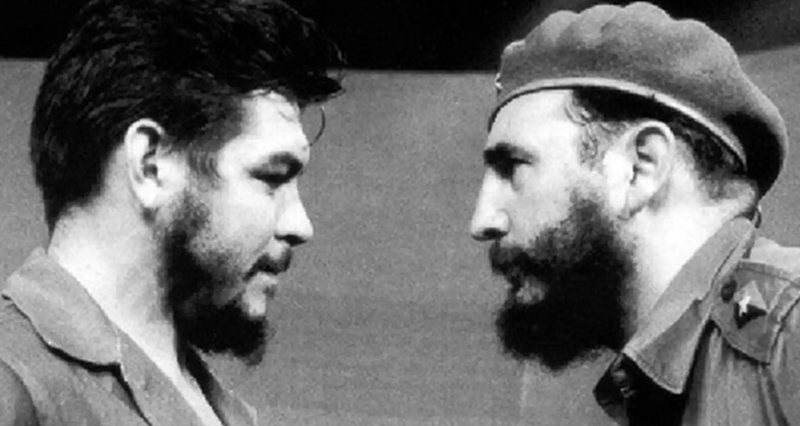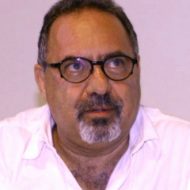June 14 marks the 95th. anniversary of the birth of Commandante Ernesto Che Guevara, who is eternally remembered for his moral and human greatness, for his skills as a military and political leader, his integrity and revolutionary ethics, but to a lesser extent (especially outside of Cuba) for his outstanding condition as a statesman when he held high positions in the Cuban government before exposing with the greatest height known, his internationalist conviction first in Africa and later in Bolivia.
Before leaving Cuba, dated March 26, 1965, he addressed a long letter (37 pages) to Commander-in-Chief Fidel Castro. Herein, he shared some of his ideas regarding the leadership of the party and the State, in particularly those that refer to the management of the economy. As he himself says in the presentation of the text, he was imbued with the intention of exposing “constructive criticism” that could serve to improve some aspects that, according to him, presented problems.
This letter was published in its entirety for the first time in the book “Che Guevara. Epistolary of a time. Letters 1947-1967”, edited by Ocean Sur in 2019. According to what is explained in the presentation of the book: ”[This letter] together with his speech in Algiers on February 25, 1965 and the letter to the weekly magazine Marcha de Marzo in the same year constitute a triad of documents in the exercise of thinking [about] the Revolution: its external projection, the ideological development and the problems of the socialist transition, as well as the practical problems that the Cuban experience was facing.”
Che structures his writing along 4 aspects: errors in economic policy, the budget financing system, the role of the party and general recommendations. It would be impossible to gather in an article of these characteristics all the importance of the content of the text and the strategic and long-term dimension that it reveals. I will limit myself to presenting certain (in fact very few) aspects that are – in my perspective – some of the most notable in order to expose this other side of the splendor and magnificence of the work and life of Commandante Che Guevara on this new anniversary of his birth.
When making an analysis of some of the errors that, according to his criteria, were being committed in the execution of the government action, he considers that the fundamental thing is given by the “politics of lurches” that has its origin in the “superficial treatment” and subjectivity in managing the economy. Che recalled that the economy has a series of laws that, when violated, produce disastrous consequences.
According to him there were other minor problems, which nevertheless had a great impact on the economy, such as the “lack of demanding the responsibility of management cadres” who are not monitored and criticized when they make mistakes and in order to be removed later violently. In this area, he also points to “happy spending” policies that must be corrected because they hurt the economy.
Likewise, he alludes to the lack of awareness of the need for the organization as a pillar of development, giving way to “administrative chaos” that brings disastrous repercussions in terms of solidity of the structures and in the correct management of the cadre policy. In this regard, he states that “… a good team works infinitely better than a mediocre or bad team, but it must also be taken into account that no matter how good the team is, if the general organizational framework prevents it from doing so, it can only perform a limited task”.
At this point, Commander Guevara criticizes the fact that organizational systems from other socialist countries have been copied when they themselves have discarded them to adopt much worse methods. He considers that it was a mistake to establish extreme controls that, under the conditions of Cuba, were impossible to implement.
Understanding that there must be a material interest, he criticizes the emergence of “the great marshals with the salaries of great marshals, the bureaucrats, the dachas and the curtains in the cars of the hierarchs. That is the justification, perhaps, of the material interest of the leaders, the beginning of corruption…”.
Che explains that the law of value cannot act with complete freedom on the assumption that all the actors have the same chance and function equally when in reality, under such conditions, some of them would disappear. He believes that the state should guarantee a series of products and prices to the population until there is an equitable system, at which time modifications must be made to gradually abandon the logic of the market as the sole regulator of the capitalist system.
He exposes that the Soviet Union (USSR) proposed competition with the United States in areas that do not mean the paralysis of capitalism. For example, in steel the USSR had a higher production than the United States, but the latter, by inserting itself into forms of capitalist development that uses new advanced techniques, is more productive while in the USSR there was a paralysis of development. He wonders “what happens then? It is simply that steel is no longer the fundamental factor to measure the efficiency of a country, because there is chemistry, automation, non-ferrous metals, and besides that, you have to look at the quality of the steels. The United States produces less but produces a large amount of much higher quality steel. The technique has remained relatively stagnant, in the vast majority of Soviet economic sectors. Why? Because a mechanism had to be made and given automaticity, establishing the laws of the game where the market no longer acts with its capitalist implacability. But the mechanisms that were devised to replace them are fossilized mechanisms and that is where the technological mess begins. Lack of the ingredient of competition, which has not been replaced, after the brilliant successes obtained by new companies thanks to the revolutionary spirit of the first moments, technology ceases to be the driving factor of society.”
Che explained that this does not happen in the area of defense because here, profitability does not exist as a norm in that it is an activity at the service of society. But in capitalism, the production apparatus is linked to that of defense “because they are the same companies, they are twin businesses and all the great advances obtained in the science of war immediately pass to the technology of peace and consumer goods make truly gigantic quality leaps. In the Soviet Union none of that happens. They are two watertight compartments and the system of scientific development of war has a very limited service to peace.”
Commandante Guevara stated that, as far as possible, the elimination of capitalist categories should be done, but it had to be done effectively. However, he considered it necessary to take some elements of capitalism such as its “latest administrative and technological advances…”.
With extraordinary didactic criteria, he explained that : “We can be told that all of our claims would also be equivalent to claiming to have here – because the United States does – an Empire State and it is logical that we cannot have an Empire State. However, we can indeed have many of the advances that American skyscrapers have and [the] manufacturing techniques of those skyscrapers, even if we make them smaller. We cannot have a General Motors that has more employees than all the workers in the Ministry of Industries put together, but we can and do have an organization similar to General Motors. Technology plays a role in this management technique problem. Technology and management technique have been constantly changing, closely linked throughout the process of the development of capitalism. However, in socialism they have been divided as two different aspects of the problem and one of them has remained totally static. When they have noticed the gross technical flaws in the administration, they search in the vicinity and discover capitalism”.
It is incredible: Commandante Guevara was 13 years ahead of Deng Xiaoping and the Chinese Communist Party, which in 1978 adopted similar criteria to carry out the reform and opening policy that led China to become a great world power today.
When referring to the party in his letter to Fidel, Che believes that it should be an apparatus that combines the double task of simultaneously being the ideological engine of the Revolution and its most efficient control system. He said that the first mission implied that the organization had to take the directives of the government in order to transform them into “impulses” for the execution of the governing and the action of the citizens. He believes that the second mission of the party is established from a training of the militants and the structures of the political organization to show the government “the image of what really happens in everything that does not depend on statistics or economic analysis, that is, morality, discipline, management methods, the opinion of the people…”. It should be noted that at the time of writing this letter, the Communist Party of Cuba had not yet been founded. Che was giving some opinions about what -according to his criteria- should be the task of the organization.
Regarding the general recommendations, he proposed to be specific. He explains that in reference to economic policy, a small group of people should be created to dedicate themselves to studying the political economy of the period in which they lived, understanding that even if they were not going to easily solve the problems that arose, they would help to establish some points of view to help define the most urgent tasks. In this way, an idea would emerge about what should be produced, what should be imported, the necessary productive investments and even the unproductive investments. All this to answer the question of whether all this could be done with the methods used up to now.
He summed it up by saying that it was imperative “to make an elementary balance of our needs and our desires. If it were possible to do this once and stick to an action plan that would not have to be extremely detailed, internal lines of development could be carried out in the long term.”
He proposed that the main lines should be investment in the industry, particularly in the most modern ones, to have a solid mechanical base and an elemental metallurgical base, highlighting that it was necessary to dedicate oneself to “petroleum chemistry, sugar, basic chemistry, including fertilizers”. He called for “chemizing to the maximum”, automazing as the only way to compete and attend to the disturbing problem of preventive maintenance.
He added that it was essential to develop “an educational policy consistent with everything that is to be achieved united in all its parts, consistent in its scales and consistent with what is sought” and ended by saying that “the same principle should be followed in Foreign Relations”.
He considered that in this way, much could be achieved and although some errors had not been corrected on time, it was “preferable to take a little more time to correct them and not do it immediately, without thinking about the possibilities of making a new error”.
He concludes in the privacy of his relationship with Fidel stating that: “These are criticisms that I make protected by the old friendship and the appreciation, admiration and unlimited loyalty that I profess to you.” With the humor that was his own, he says: “I’m not very sure that you will reach this page because there have already been many”.
And to make sure there are no doubts regarding the spirit of the letter, it ends by exclaiming: “Patria o Muerte”.









Leave a Reply